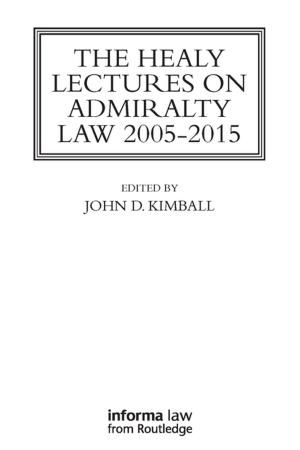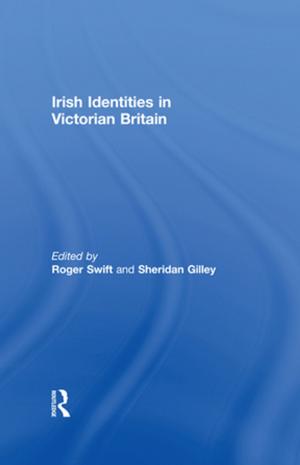Provisional Cities
Cautionary Tales for the Anthropocene
Nonfiction, Art & Architecture, Architecture| Author: | Renata Tyszczuk | ISBN: | 9781317074045 |
| Publisher: | Taylor and Francis | Publication: | November 2, 2017 |
| Imprint: | Routledge | Language: | English |
| Author: | Renata Tyszczuk |
| ISBN: | 9781317074045 |
| Publisher: | Taylor and Francis |
| Publication: | November 2, 2017 |
| Imprint: | Routledge |
| Language: | English |
This book considers the provisional nature of cities in relation to the Anthropocene – the proposed geological epoch of human-induced changes to the Earth system. It charts an environmental history of curfews, admonitions and alarms about dwelling on Earth. ‘Provisional cities’ are explored as exemplary sites for thinking about living in this unsettled time. Each chapter focuses on cities, settlements or proxy urbanisations, including past disaster zones, remote outposts in the present and future urban fossils. The book explores the dynamic, changing and contradictory relationship between architecture and the global environmental crisis and looks at how to re-position architectural and urban practice in relation to wider intellectual, environmental, political and cultural shifts. The book argues that these rounder and richer accounts can better equip humanity to think through questions of vulnerability, responsibility and opportunity that are presented by immense processes of planetary change. These are cautionary tales for the Anthropocene. Central to this project is the proposition that living with uncertainty requires that architecture is reframed as a provisional practice. This book would be beneficial to students and academics working in architecture, geography, planning and environmental humanities as well as professionals working to shape the future of cities.
This book considers the provisional nature of cities in relation to the Anthropocene – the proposed geological epoch of human-induced changes to the Earth system. It charts an environmental history of curfews, admonitions and alarms about dwelling on Earth. ‘Provisional cities’ are explored as exemplary sites for thinking about living in this unsettled time. Each chapter focuses on cities, settlements or proxy urbanisations, including past disaster zones, remote outposts in the present and future urban fossils. The book explores the dynamic, changing and contradictory relationship between architecture and the global environmental crisis and looks at how to re-position architectural and urban practice in relation to wider intellectual, environmental, political and cultural shifts. The book argues that these rounder and richer accounts can better equip humanity to think through questions of vulnerability, responsibility and opportunity that are presented by immense processes of planetary change. These are cautionary tales for the Anthropocene. Central to this project is the proposition that living with uncertainty requires that architecture is reframed as a provisional practice. This book would be beneficial to students and academics working in architecture, geography, planning and environmental humanities as well as professionals working to shape the future of cities.















